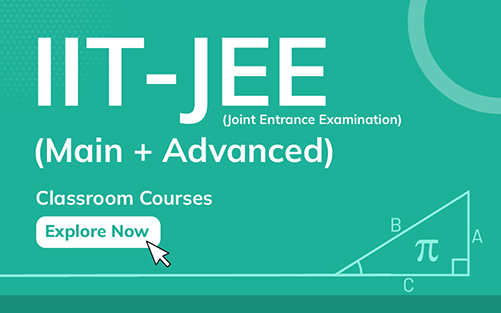How to improve Speed and Accuracy in NEET Biology?

Biology is the most important subject for the NEET aspirants, but most of the aspirants lack speed and accuracy, which are very important in the NEET. In this blog, MENIIT has given certain tips for NEET aspirants to increase their speed and accuracy in NEET biology.
NEET Biology
The National Eligibility Cum Entrance Test, also known as NEET, is an entrance test for various medical colleges and courses. Prestigious colleges like AIIMS, JIPMER, etc. allow admission in MBBS after clearing the NEET. This is one of the reasons why there is so much competition in NEET. The competition is so intense that even though only the students in class 12th who have biology as one of their subjects and have attained the age of 17 years are eligible to apply for the NEET, in the year 2024, approximately 24 lakh candidates applied for the NEET. However, the total number of seats in MBBS colleges is roughly around 1,00,000. The exam demands constant hard work, dedication, and patience in the right direction from the aspirants. Most of the students who appear in NEET have to cope with two things: the completion of the syllabus, and maintaining their speed and accuracy in the exam. Let’s look at how students can manage both.
NEET is a 3 hours and 20-minute exam with 720 marks and 180 questions, half of which i.e. 90 questions and 360 marks are from only biology. Students need to read, understand, and answer 180 questions in 3 hours and 20-minute exam correctly in order to grab a seat in an MBBS course at one of the top medical colleges in the country. In order to stay in ahead of everyone else in the competition, students need to maintain their high speed and accuracy in the biology section of the NEET, as this section has the highest weightage.
Most of the students face the problem of maintaining speed and accuracy, and this is one of the key factors due to which they cannot score good marks in the competition.
To address this problem for students, MENIIT presents the blog “How to Improve Speed and Accuracy in NEET Biology?“
Speed and Accuracy
Speed and accuracy play a very important role in the selection of any aspirant, especially in exams like the NEET, where there are a lot of questions. However, it is utmost important that both high speed and accuracy come together, because only high speed without accuracy would result in lots of wrong answers, and only accuracy without speed would result in lots of unanswered questions.
But how can aspirants maintain both speed and accuracy? Let us look at a few tips that can help aspirants increase their speed while maintaining their accuracy.
- Understand the pattern of the examination: It is the basic demand of any exam to understand its exam pattern in order to score good marks. Understanding the pattern helps the aspirants increase their speed and accuracy.
- Strengthen the basic concepts: Basic concepts are the key to scoring good marks in NEET. It is important for aspirants to focus on the basic concepts of biology.
- Read the question carefully: To maintain accuracy, it is very important to read the question carefully, understand the demand of the question, note down the given data, and then solve the question. Generally, in NEET Biology, questions don’t require any specific formula, but it is very important to read them properly as the questions are not straight-forward.
- Attempt easier questions first: Although every aspirant has their own strategy for attempting the paper, generally it is recommended to attempt easy questions first, as this would increase confidence and save time that can be further utilized to solve tougher questions.
- Develop the ability to make quick decisions: It is not necessary to solve all the questions. Some questions are so lengthy that it is wise to leave them. Aspirants must develop the ability to filter and avoid such questions.
- The art of elimination: Aspirants need to look for short methods to get the correct answers. It is not necessary to solve each and every question completely; rather, students should learn how to eliminate the wrong answers. This would save a lot of time and increase their speed.
- Use the guess method: Although not recommended yet, guessing can work sometimes if aspirants are close to the final answer. Instead of solving the problem the problem completely and getting the correct answer, the aspirant can make a guess and mark the closest to the right answer.
- Try to avoid questions at the last minute: Attempting questions at the last minute can create unnecessary pressure, due to which the chances of making a mistake increase, so it’s better to avoid solving questions at the last minute. Aspirants can use the last minute to recheck their answers.
- Learn short tricks: The best part of MCQ-based exams is that aspirants need to know only the correct answer and not the method. So instead of going through regular time-consuming methods, students can use short tricks to solve the questions. The habit of using the right short trick can be developed through regular practice and mock tests.
- Note down the mistakes: The best way to learn from the mistakes is to note them down and revise them so that they won’t be repeated in the future.
- Constant practice and regular revision: No matter how many concepts are studied, without practice, all would be wasted. For the NEET aspirants, it is important to maintain quantity as well as quality in order to achieve higher speed and accuracy and eventually good marks in the competition. Famous martial artist Bruce Lee once said, “I fear not the man who has practiced 10,000 kicks once, but I fear the man who has practiced one kick 10,000 times. Therefore, aspirants should focus on revising NCERT Biology multiple times before the exam.
- Stay healthy and relaxed: A healthy mind resides in a healthy body. From the point of view of aspirants, it is very important to stay healthy and relaxed, as it can help their brain function well.
These are some important general tips from MENIIT. These tips can help aspirants increase their speed and accuracy; however, every aspirant is different, and hence the strategy of each aspirant is also different.
Read More: NEET Exam: How to speed up numerical solving for Physics?FAQs:
How can I learn biology faster for NEET?
NCERT is the best resource for NEET Biology. Aspirants are advised to read NCERT multiple times for better understanding of concepts.
Which is the toughest chapter in NEET Biology?
Every chapter is easy, if the aspirant is determined. Easy-tough are just the judgements of human mind. Lack of practice can make the easiest chapter most difficult and with lots of practice, no chapter/topic looks tough.
Which year was NEET the easiest?
Easy and difficult depends upon the preparation level of aspirants, if the preparation is good, then not only NEET, every exam is easy and if the preparation is not good, every exam is tough.
Which is the easiest chapter in Biology?
The easiest chapter is the one in which the aspirants don’t feel any difficulty in solving questions, remembering facts and data.
How to make a revision plan for NEET?
Students can follow the below-mentioned tips for effective revision.
- Make crisp and concise short notes from NCERT.
- Try to interlink the topics.
- Attempt mock tests on regular basis and analyse the mistakes.
- Instead of going for large topics at once, break the topics into smaller parts and make a goal to complete them by the end of the day.
- Revise self-notes multiple times.
- Use mnemonics and other techniques to memorize the information.
















